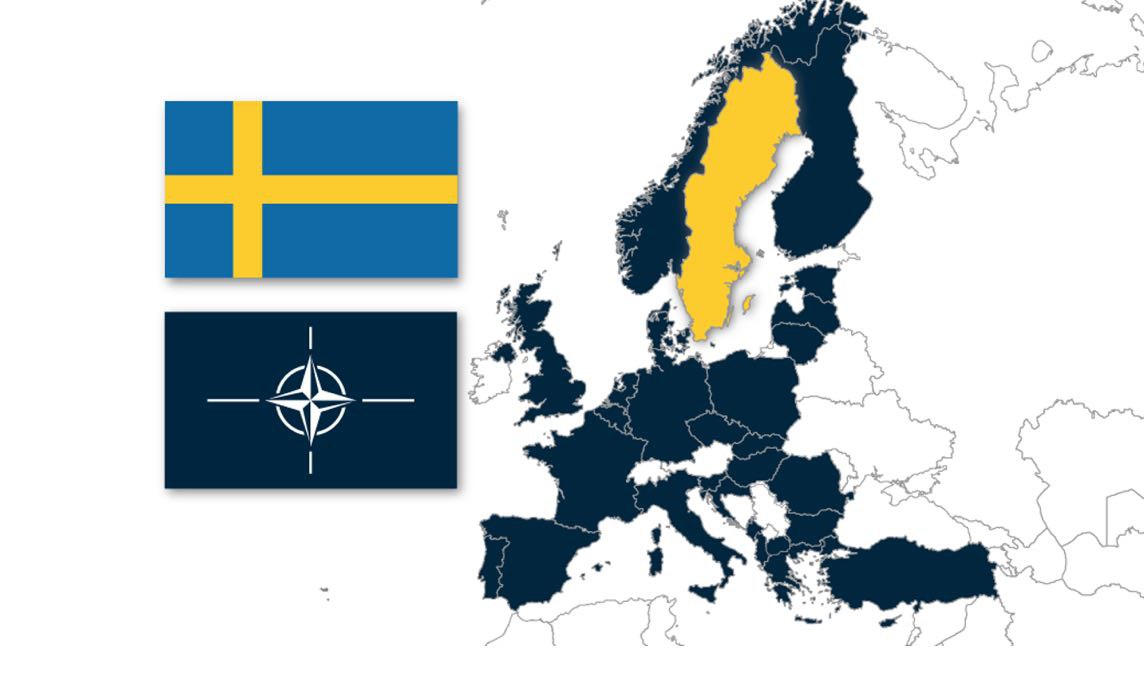Sweden’s membership in NATO is seen as a declaration of war from Europe to Russia.
Sweden’s membership in NATO was announced as a declaration of war from Europe to Russia after Turkey approved Sweden’s membership in the military alliance in January of this year. Hungary was the last NATO member to agree to this country’s membership in the pact. The membership of these two European countries, which traditionally did not adhere to any coalition membership policy and even remained committed to it during the Cold War, was seen by Moscow as an important factor in ensuring stability in Northern Europe, a fact that had also been accepted by European countries.
Now, despite NATO’s expression of satisfaction with deepening cooperation with Finland and Sweden, Russian authorities have publicly interpreted this move as hostile towards Russia. In such circumstances, two questions arise. The first question is what is the reason behind such a request from Sweden and Finland, and what strategic consequences will their joining NATO have?
In response to the first question, it should be noted that although in the realm of international media, efforts are made to portray the Russia-Ukraine conflict as the sole reason for the concerns of these two Northern European countries and their decision to join NATO, this is only a part of the reality puzzle and certainly not the whole truth.
If we broaden our view of the strategic games of international powers a little, we will realize that following the recent changes in the US national security strategy and the shift in focus of this country from the Middle East towards China and Russia, efforts to strengthen NATO and unify Europe against Russia to weaken one of these two rivals have become a top priority in US strategic plans.
Therefore, the key point to consider is that the expressed desire of these two Scandinavian countries to join NATO was not merely a domestic decision based on their security needs, but was done under the guidance and support of the US. The signing of a new contract by Finland to purchase 64 F-35 fighter jets from the US in February 2021 further reinforces this claim.
By joining NATO, Sweden and Finland are placing themselves more than ever against Russia within the framework of the European Union. A kind of universal pressure against Moscow is being put on the agenda, which is what American authorities are pursuing: weakening Russia at the cost of their allies. Thus, by expanding NATO and strengthening the military power of the European part of NATO, European cooperation in restraining Russia increases, allowing the US to more openly address containing China.
Regarding the second question about the strategic consequences of Sweden and Finland joining NATO, it should be noted that this will lead to further expansion and strengthening of NATO, tightening the encirclement circle around Russia. Consequently, it will definitely increase the security environment and level of tensions in the Northern European region.
Although Finland and Sweden do not have a significant population or military budget, they possess modern armies and technologically advanced military-industrial infrastructure. In recent years, due to concerns about the Russian threat, they have increased their military spending. Therefore, the membership of these two countries will strengthen NATO and make it more pervasive.
Russia sees the joining of Sweden and Finland to NATO as a clear threat and in the not-so-distant future, we may witness an arms and political confrontation between Russia and the Western front. Therefore, the expansion of NATO in new dimensions not only does not bring security and stability to European countries but by putting them in a confrontation line with Russia and turning Europe into a tool to secure the goals and interests of the United States, it will disrupt the political and economic development of the Green Continent and turn the Eastern and Northern Europe into a new crisis-prone zone on the global geopolitical map.
By joining NATO, Sweden put an end to its 200-year neutrality.
Some Swedes are concerned that joining NATO might lead to a fundamental change in their national identity. Sweden’s 200-year-old tradition of international neutrality, which positioned Stockholm as a major peace mediator and human rights defender worldwide, came to an end with joining NATO. The Russia-Ukraine conflict has put Swedes at a difficult crossroads, where they must either face a highly aggressive neighbor alone or set aside their long-term neutrality and join the Western military security alliance. Nevertheless, some Swedes are worried that joining NATO might result in a fundamental change in their national identity.
From Dag Hammarskjöld’s efforts as the former Secretary-General of the United Nations to promote peace in Congo in the 1960s to Hans Blix’s role as the chief weapons inspector for the United Nations in the years leading up to the Iraq War, Sweden’s neutrality allowed the country to play a significant role in global conflicts.
Critics are concerned that Sweden’s joining NATO could limit Stockholm’s options and force it to act in coordination with its allies. For example, Sweden’s efforts to gain Turkey’s approval for NATO membership have led Stockholm to take a tougher stance against Kurdish paramilitaries opposed by Ankara. In recent decades, Sweden has moved closer to NATO and has participated in the alliance’s operations in Afghanistan, Kosovo, Libya, and Iraq.
Russia’s condemnation of Sweden’s NATO membership
Russians openly consider Sweden and Finland’s accession to the North Atlantic Treaty Organization (NATO) as a serious threat to themselves. Therefore, with the membership of these two countries in this military coalition, we may witness an arms and political confrontation between Russia and the Western front in the not-so-distant future.
Based on this, the deployment of missiles capable of carrying nuclear warheads on the border between Russia and Finland and other European countries by the Kremlin is considered an attack on other European countries bordering Russia. The use of cutting exports or increasing energy carriers prices as a tool to pressure European countries, and of course, the Kremlin’s efforts to recruit and form a mutual military pact are some of the possible measures that Russia may take in response to these decisions.
In recent days, the Russian Embassy in Sweden announced in a statement that Russia will take retaliatory actions of a political, military, and technical nature to stop threats against its national security. This diplomatic body pointed out that Sweden’s joining NATO will have a negative impact on stability in northern Europe. Russia stated that the Baltic Sea, contrary to the arrogant statements of NATO supporters, will never turn into an internal NATO sea in the future of Sweden.
The Kremlin has emphasized that Russia does not pose any threats but will not ignore actions that potentially endanger its national interests. Additionally, in recent years, Russia has pointed to unprecedented NATO activities near its western borders and has seriously warned against the US strategic containment approach towards Russia.
Moscow has repeatedly expressed concerns about the increasing presence of NATO military forces near its borders. At the same time, Russian officials have stated multiple times that Moscow remains ready for dialogue with NATO on an equal basis, while the West needs to set aside the militarization of the European continent.
Persian
مشاهده این مقاله به زبان فارسی


